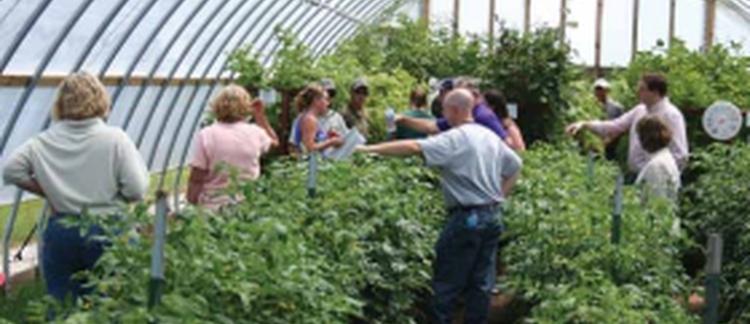Abstract
In the Midwest, squash production can be affected by insect pests such as cucumber beetles (Acalymma vittatum and Diabrotica undecimpunctata) and squash bug (Anasa tristis), which spread the pathogenic bacteria Erwinia tracheiphila (causal agent of bacterial wilt) and Serratia marcescens (causal agent of cucurbit yellow vine disease), respectively. These insects are difficult to control under organic systems because of the lack of effective insecticides. An alternative approach is the use of physical barriers such as low tunnels or mesotunnels. Mesotunnels are 3.5-ft-high tunnels covered with a nylon mesh fabric. Mesotunnels can protect marketable yield better than low tunnels, mainly because they can be used for longer periods than low tunnels. Despite their potential advantages, mesotunnels must accommodate the bees that pollinate cucurbit crops. Therefore, the objective of this research is to optimize pollination in mesotunnel systems.
How to Cite:
Gleason, M. L. & Badilla Arias, S., (2021) “Optimizing Pollination of Acorn Squash in Organic Mesotunnel Systems”, Iowa State University Research and Demonstration Farms Progress Reports 4.
Downloads:
Download PDF
View PDF
309 Views
133 Downloads

